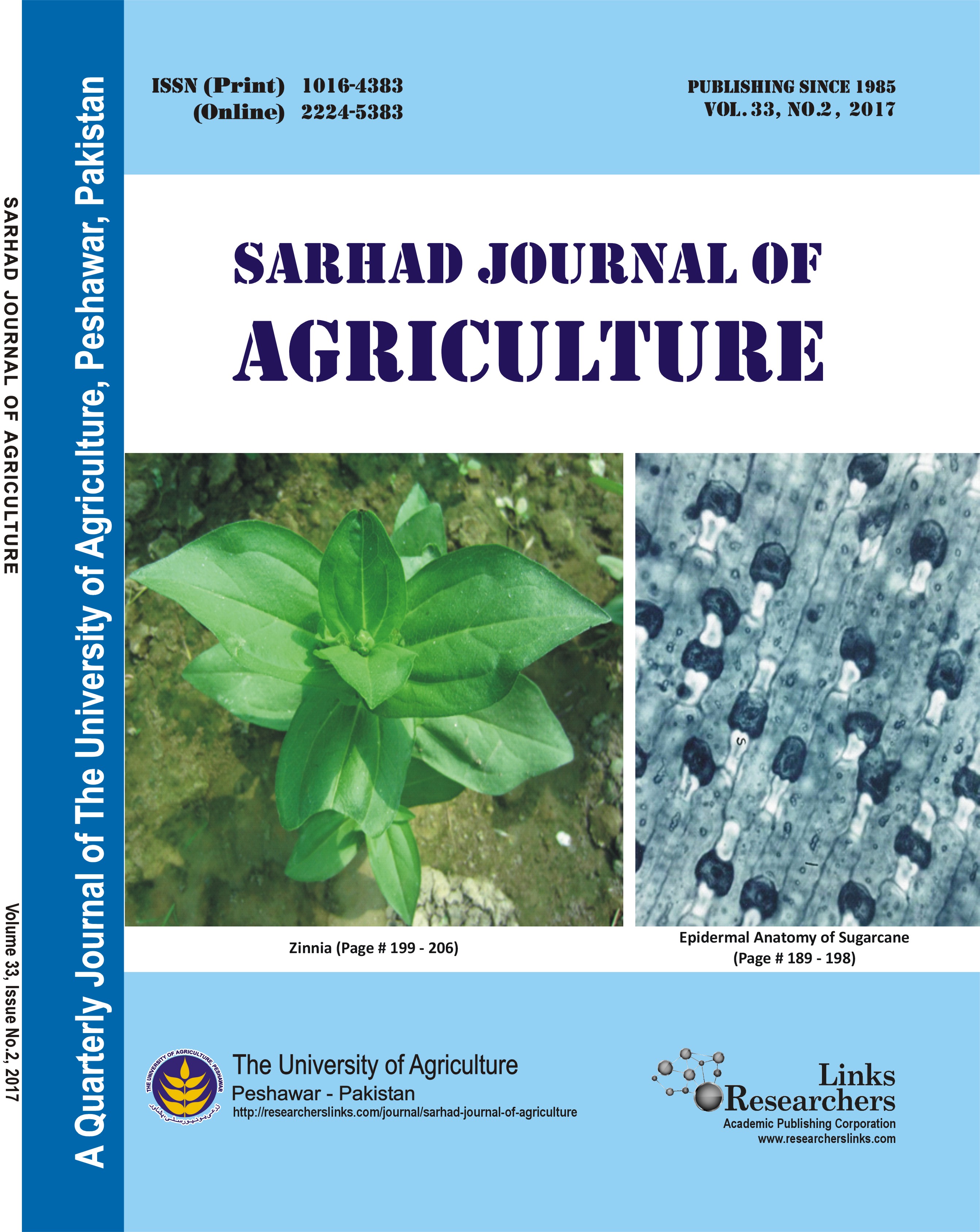Metabolic Engineering of Berberine in Plants Can Confer Resistance to Insects
Metabolic Engineering of Berberine in Plants Can Confer Resistance to Insects
Anila Latif, Zaheer Abbas, Farhatullah and Ghulam Muhammad Ali*
ABSTRACT
Dimond Back Moth (Plutella xylostella) is highly destructive for cruciferous crops globally and resistant against different chemicals and biopesticides. DBM has shown resistance against 12 different strains of Bacillus thuringiensis (Bt) and 91 active ingredients of agricultural chemicals globally. Alternative ways should be explored to control DBM. Berberine is an insect toxic alkaloid and produced by plants of family Berberidaceae. Berberine Bridge Enzyme (BBE) gene involved in the synthesis of berberine was isolated from Berberis lyceum and over expressed in Arabidopsis thaliana. The integration of the BBE gene in transgenic lines was confirmed through PCR while the expression was confirmed by Reverse Transcriptase PCR. Whole plant bioassay confirmed 100% mortality in DBM within 72 hours. The present investigation concludes that the metabolic engineering of berberine in plants is an effective strategy to protect plants from herbivorous insects and this pathway should further be evaluated for possible application in agriculture.
To share on other social networks, click on any share button. What are these?







